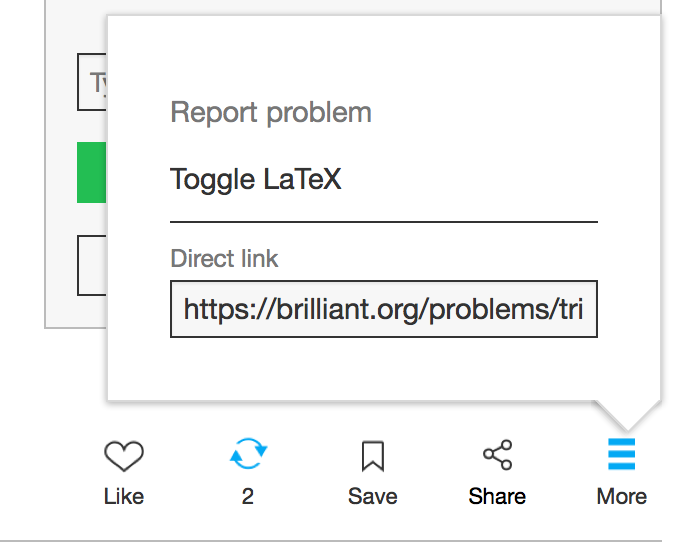Exponent ain't that tough
x + x 1 = 5 , x 3 + x 3 1 x 5 + x 5 1 = ?
This section requires Javascript.
You are seeing this because something didn't load right. We suggest you, (a) try
refreshing the page, (b) enabling javascript if it is disabled on your browser and,
finally, (c)
loading the
non-javascript version of this page
. We're sorry about the hassle.
3 solutions
The option given is incorrect. It should be \frac{505}{22} instead of \frac{527}{23}.
You can also do it without the binomial theorem:
( x + x 1 ) 2 = 5 2 x 2 + 2 + x 2 1 = 2 5 x 2 + x 2 1 = 2 3 ( 1 ) ( x 2 + x 2 1 ) ( x + x 1 ) = 2 3 ⋅ 5 x 3 + ( x + x 1 ) + x 3 1 = 1 1 5 x 3 + x 3 1 = 1 1 0 ( 2 )
Meanwhile, using equation 1 : ( x 2 + x 2 1 ) 2 = 2 3 2 x 4 + 2 + x 4 1 = 5 2 9 x 4 + x 4 1 = 5 2 7 ( x 4 + x 4 1 ) ( x + x 1 ) = 5 2 7 ⋅ 5 x 5 + ( x 3 + x 3 1 ) + x 5 1 = 2 6 3 5 x 4 + x 4 1 = 2 6 3 5 − 1 1 0 = 2 5 2 5 from equation 2.
Therefore, the expression equals 1 1 0 2 5 2 5 = 2 2 5 0 5 .

The reciprocals give us a clue that some convenient cancellation will occur when we exponentiate (using the binomial theorem).
( x + x 1 ) 3 x 3 + 3 x 2 ⋅ x 1 + 3 x ⋅ x 2 1 + x 3 1 x 3 + 3 x + 3 x 1 + x 3 1 x 3 + 3 ( x + x 1 ) + x 3 1 x 3 + 3 ( 5 ) + x 3 1 x 3 + x 3 1 = 5 3 = 1 2 5 = 1 2 5 = 1 2 5 = 1 2 5 = 1 1 0 = 5 ⋅ 2 2
( x + x 1 ) 5 x 5 + 5 x 3 + 1 0 x + x 1 0 + x 3 5 + x 5 1 x 5 + 5 ( x 3 + x 3 1 ) + 1 0 ( x + x 1 ) + x 5 1 x 5 + 5 ( 1 1 0 ) + 1 0 ( 5 ) + x 5 1 x 5 + x 5 1 = 5 5 = 5 5 = 5 5 = 5 5 = 5 5 − 5 2 ( 2 4 ) = 5 2 ( 5 3 − 2 4 ) = 2 5 ⋅ 1 0 1
x 3 + x 3 1 x 5 + x 5 1 = 5 ⋅ 2 2 2 5 ⋅ 1 0 1 = 2 2 5 0 5